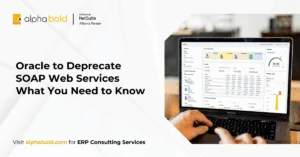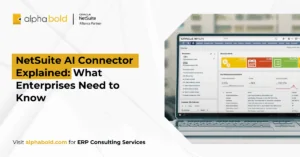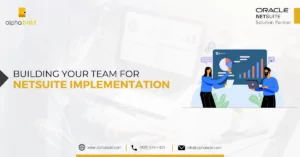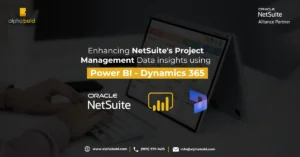Table of Contents
Introduction
Construction firms in the United States operate in a demanding environment where margins are tight, projects run across multiple states or job sites, and delays can stem from supply chain issues, labor shortages, or weather. Relying on disconnected spreadsheets and standalone tools makes it harder to track costs, manage crews, and keep schedules on target.
NetSuite benefits for construction companies by providing a single ERP system that covers project management, job costing, financials, and billing. It brings project managers, finance teams, and field staff onto one platform so decisions are based on real-time data, not guesswork. Looking ahead to 2026, NetSuite is rolling out key changes that matter for U.S. contractors: the shift from SOAP to REST integrations, AI-driven project summaries in SuiteProjects Pro, and the move to NetSuite2.com data sources. These updates are designed to simplify compliance, speed up reporting, and give contractors clearer visibility into profitability across every job.
This guide highlights the most important NetSuite benefits for construction companies, explaining how it supports project planning, cost estimation, change orders, revenue management, and financial closeout.
How Does NetSuite Support Job Breakdown and Project Planning?
One of the key NetSuite benefits for construction companies is the ability to break down complex projects into detailed tasks that connect directly to budgets, labor, and schedules. This bottom-up planning method captures every cost and milestone before work begins.
For U.S. contractors, this means:
- Job costing at the task level: Assign labor, materials, subcontractors, and equipment costs directly to each work package.
- Forecasting across long project timelines: Handle jobs that span multiple accounting periods or years, common in large commercial or infrastructure projects.
- Better risk management: Spot potential delays early, whether caused by permitting, weather, or supply chain issues.
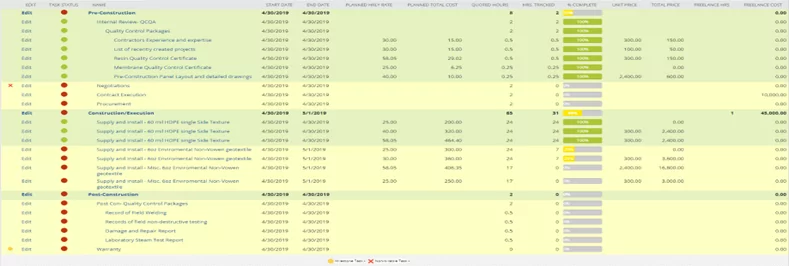
What’s New Heading Into 2026:
- AI forecasting: Multivariate forecasting models analyze labor rates, material costs, and schedules together for more reliable projections.
- AI project summaries (SuiteProjects Pro, expected in early 2026): Automatically generate project status reports to help general contractors and project managers shorten review cycles.
- NetSuite2.com data source migration: Contractors need to update project dashboards and reports before the 2026.1 release to ensure smooth performance.
Takeaway: With NetSuite, project planning moves beyond high-level budgets. Contractors gain detailed job breakdowns, AI-powered forecasts, and tools to keep projects profitable and on schedule.
Optimize Your Next Construction Project with AlphaBOLD
See how NetSuite simplifies job costing, forecasting, and project delivery. Keep projects profitable and on schedule with real-time insights.
Request a DemoHow Does NetSuite Improve Cost Estimation and Change Orders?
Accurate job costing is one of the most critical NetSuite benefits for construction companies. By capturing every cost component at the activity level, contractors can create estimates that reflect real-world conditions and manage change orders without losing visibility into profitability.
For U.S. construction projects, NetSuite supports:
- Detailed cost components: Track labor rates, materials, subcontractor fees, equipment usage, and retainage requirements.
- Activity-level costing: Assign costs to individual tasks or work packages for maximum accuracy.
- Centralized change order tracking: Manage scope changes in one place and ensure they flow through to budgets, schedules, and invoices.

For more insights, read Engineering Change Order in NetSuite.
What’s New Heading Into 2026:
AI-powered forecasting: Project managers can simulate the financial impact of change orders by analyzing labor, materials, and schedule data together.
Automated reporting: Change order logs can be tied directly into financial dashboards for faster visibility during project reviews.
Compliance alignment: As NetSuite transitions to NetSuite2.com by 2026.1, change order reporting will become easier to standardize across jobs and accounting periods.
Takeaway: With NetSuite, contractors don’t just record change orders; they can see in real time how those changes affect budgets, schedules, and cash flow, keeping projects profitable even when conditions shift.
How Does NetSuite Simplify Project Management and Resource Planning?
A major NetSuite benefit for construction companies is that it gives project managers all the tools they need in one platform, rather than juggling spreadsheets, email threads, and separate scheduling systems. This makes assigning crews, tracking progress, and keeping financial and operational data aligned easier.
For U.S. contractors, NetSuite offers:
- Preconfigured project templates to speed up job setup.
- Work breakdown structures and Gantt charts for detailed scheduling.
- Timesheet tracking and approvals for labor cost control.
- Expense and purchase order approvals tied directly to jobs.
- Team collaboration tools that connect field staff, subcontractors, and office teams.
- Dashboards with task and milestone tracking, resource allocation, and budget status in real time.
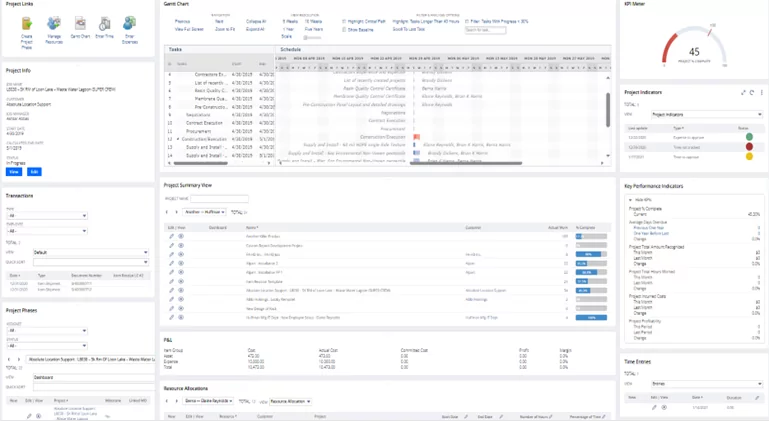
What’s New Heading Into 2026:
- Role-based access: New roles such as Project Manager and Site Operator give contractors flexible, lower-cost ways to manage site-specific staff.
- Multilingual collaboration: Expanded translation tools support U.S. contractors working with international suppliers or labor.
- AI project summaries: SuiteProjects Pro (expected in 2026) will automatically generate project status summaries to accelerate review cycles.
Takeaway: NetSuite centralizes project management, resource planning, and collaboration on one system, helping contractors keep crews productive and projects on track while maintaining visibility into costs and schedules.

User Guide for NetSuite Pricing: All You Need to Know
All you need to know about NetSuite pricing! Explore our user guide for comprehensive insights.
Learn More
How Does NetSuite Strengthen Budgeting, Forecasting, and Financials?
One of the most valuable NetSuite benefits for construction companies is the ability to connect detailed budgets with real-time financial reporting. Contractors can track project profitability at any stage without waiting for manual reconciliations or lengthy close processes.
For U.S. contractors, NetSuite supports:
- Task-level budgets: Build budgets down to individual project tasks or work packages.
- Budget vs. actual reporting: Monitor costs against estimates as the project progresses.
- Profitability tracking: View gross margin, cost overruns, and earned value by job.
- Multi-project visibility: Consolidate reporting across several active projects.


What’s New Heading Into 2026:
- AI-powered forecasting: Multivariate models bring together labor rates, materials, and schedules for more accurate projections.
- Contextual Insights: AI-generated highlights in financial dashboards flag anomalies or risks automatically.
- Job analytics in financial close: Generative AI will summarize project-level performance during monthly and year-end close processes.
- Compliance-ready reporting: The NetSuite2.com migration will make financial reporting more standardized across projects by 2026.1.
Takeaway: NetSuite turns construction budgeting and forecasting into a proactive process, helping contractors anticipate risks, protect margins, and make faster decisions backed by accurate financial data.
Get Expert Guidance from NetSuite Consultants
Work with AlphaBOLD’s certified NetSuite team to streamline operations. From compliance to project management, we help contractors succeed.
Request a DemoHow Does NetSuite Improve Revenue Management and Billing?
Another core NetSuite benefit for construction companies is flexible revenue management that adapts to different contract types. Whether billing on percentage of completion, time and materials, or fixed schedules, NetSuite ensures revenue policies align with the way contractors actually work.
For U.S. construction projects, NetSuite provides:
- Flexible billing models: Percentage-of-completion, milestone-based, recurring, or time-and-material.
- Consolidated invoicing: Combine multiple jobs or change orders into a single invoice while keeping detailed line items.
- Revenue recognition compliance: Automate ASC 606 rules to reduce errors and audit risks.
- Client visibility: Provide clear, professional invoices that align with owner and subcontractor expectations.
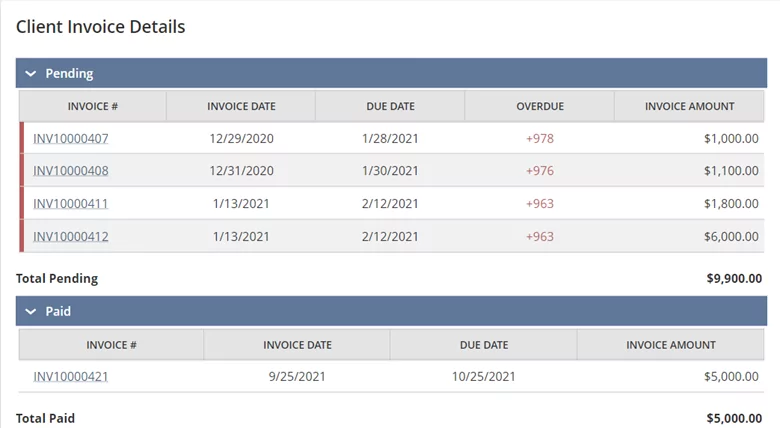
What’s New Heading Into 2026:
- AI-assisted revenue recognition: Automates mapping of project data to accounting fields, reducing manual setup.
- Field mapping improvements: Easier configuration for custom revenue policies across multiple projects.
- Invoice automation: Enhanced consolidation tools reduce backlog and speed up collections.
- REST-first integrations: As SOAP endpoints are phased out in 2026.1, billing and revenue workflows will connect more smoothly with third-party systems.
Takeaway: NetSuite allows contractors to bill accurately, recognize revenue properly, and maintain cash flow across multiple jobs, all while reducing administrative overhead.
Learn more about Managing Your Financial Segments in NetSuite here!
How Does NetSuite Support Compliance and Security in Construction?
Among the most overlooked NetSuite benefits for construction companies is the ability to maintain compliance and secure financial data while managing multiple projects and subcontractors. NetSuite combines built-in audit tools with enterprise-grade security to protect sensitive information across job sites, offices, and accounting teams.
For U.S. contractors, NetSuite ensures:
- Audit-ready records: Track change orders, job costs, and billing in a way that meets GAAP and ASC 606 requirements.
- User access controls: Restrict field staff, subcontractors, and project managers to role-appropriate data.
- Retainage compliance: Manage withheld payments and release them according to contract terms.
- Data protection: Safeguard payroll, vendor, and client data with advanced authentication.
What’s New Heading Into 2026:
- Stronger authentication: Enhanced password breach checks and multi-session monitoring improve account security.
- AI-assisted compliance insights: Automatically highlight irregularities or compliance risks in financial reports.
- NetSuite2.com transition: Standardized data source will improve reporting consistency and reduce errors by 2026.1.
- SOAP to REST migration: Contractors using legacy integrations should plan for REST-first compliance by 2026.
Takeaway: NetSuite provides contractors with a secure, compliant environment where project and financial data is tracked consistently, reducing audit risks and protecting sensitive information.
How Does NetSuite Improve Supply Chain and Procurement for Contractors?
A practical NetSuite benefit for construction companies is simplifying how materials and services are purchased and delivered to job sites. Delays in procurement can stall entire projects, but NetSuite streamlines purchasing and supply planning so contractors can stay on schedule.
For U.S. contractors, NetSuite supports:
- Consolidated procurement: Combine requests for materials from multiple suppliers into one purchase order.
- Supplier management: Track subcontractor agreements, vendor performance, and compliance documents in one system.
- Inventory visibility: Monitor availability of materials and equipment across multiple job sites and warehouses.
- Procure-to-pay automation: Link purchase requests, approvals, and vendor payments directly to project budgets.
What’s New Heading Into 2026:
- SuiteProcurement updates: More advanced tools for handling multi-supplier requests, reducing manual back-and-forth with vendors.
- Supply planning dashboards: AI-enhanced analytics provide clearer forecasts of material shortages or delivery risks.
- REST-first integrations: As SOAP endpoints are phased out in 2026, procurement workflows will connect more smoothly with external logistics and supplier systems.
- Compliance-ready purchasing: Improved audit trails ensure every material purchase aligns with contract and job costing requirements.
Takeaway: NetSuite helps contractors avoid costly project delays by automating procurement, strengthening supplier relationships, and providing real-time visibility into materials and equipment across projects.
See NetSuite in Action for Contractors
AlphaBOLD’s certified NetSuite experts help contractors implement and optimize these solutions so projects stay profitable, compliant, and on track. Request a consultation today to see how NetSuite can fit your construction business.
Request a DemoConclusion
The construction industry demands accuracy, visibility, and control across every project. Disconnected tools often create gaps that lead to cost overruns, billing disputes, and missed deadlines. NetSuite closes those gaps by uniting project management, financials, procurement, and compliance in a single system.
The most important NetSuite benefits for construction companies include accurate job costing, streamlined change order management, flexible billing, stronger financial forecasting, and improved procurement visibility. Looking ahead to 2026, features such as AI-driven project summaries, predictive forecasting, and REST-first integrations will make these advantages even more impactful for contractors managing complex projects.
For U.S. contractors seeking to stay competitive, adopting NetSuite ERP is not only about improving current operations but also about preparing for the industry’s next stage of digital transformation.
Explore Recent Blog Posts



